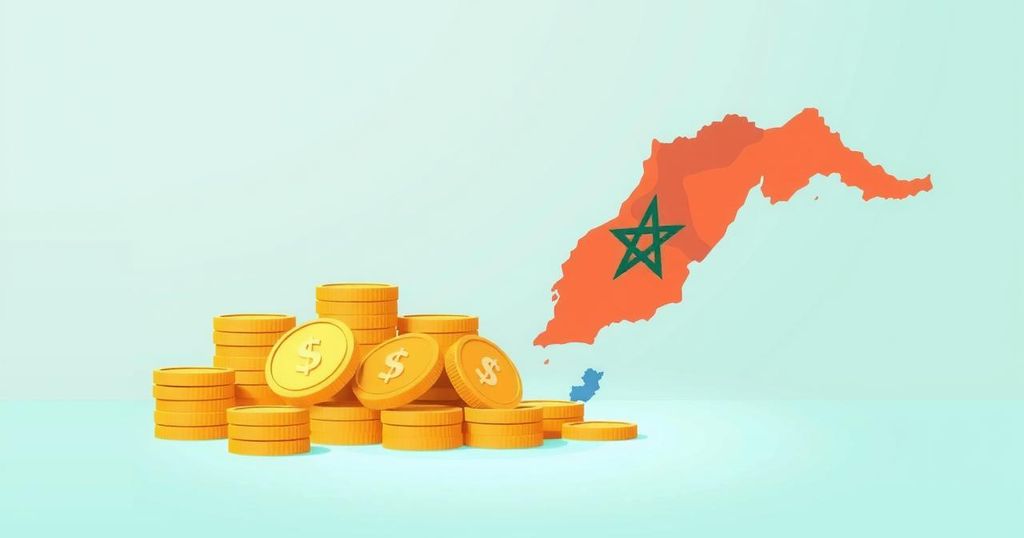IMF Releases $496 Million Funding for Economic Resilience in Morocco

The IMF has approved $496 million in additional funding for Morocco, emphasizing the country’s economic resilience. This funding, part of the Resilience and Sustainability Facility, aims to assist Morocco’s transition to a green economy and bolster disaster preparedness. Despite challenges like high unemployment and inflation, strategic reforms are expected to sustain economic growth.
On Tuesday, the International Monetary Fund (IMF) executive board authorized the release of $496 million in funding for Morocco. This decision highlights the resilience of the Moroccan economy, which continues to demonstrate stability amid external challenges. IMF Deputy Managing Director Kenji Okamura remarked on the effectiveness of Morocco’s economic policies in his statement.
This disbursement follows the approval of the third review of the Resilience and Sustainability Facility (RSF) arrangement, bringing the total funding under this framework to approximately $1.24 billion. Instituted in September 2023, the 18-month RSF arrangement is designed to assist Morocco in transitioning towards a green economy while enhancing its preparedness against natural disasters.
The funding announcement was timely, occurring shortly after a significant earthquake impacted Morocco, resulting in nearly 3,000 fatalities. This tragedy marked the deadliest earthquake in the nation over the last 60 years. The IMF reported that Morocco’s economic growth is anticipated to decelerate slightly, projecting a 3.2 percent growth rate in 2024, while GDP is expected to rise to around 3.7 percent in subsequent years, thanks to ongoing structural reforms and new infrastructure initiatives.
Mr. Okamura emphasized the importance of these reforms, stating, “These reforms are essential to making growth stronger, more resilient, job-rich, and more inclusive.” Nevertheless, high unemployment, especially in the agricultural sector, persists at about 13 percent. Nevertheless, the recent decline in inflation has enabled the central bank to implement interest rate cuts, lowering the rate to 2.25 percent from 2.5 percent, with expectations of continued inflation reduction over the next two years.
According to the IMF staff who conducted a mission in Rabat, enhancing job growth should remain a focus of structural reforms, stating that robust domestic demand continues to support economic growth. The proposal of reforms to the tax system and the evaluation of climate change risks were also acknowledged as positive developments.
As the final review of Morocco’s RSF program, six out of the seven measures scheduled for evaluation have been accomplished. Mr. Okamura noted that these necessary measures will contribute to better management of limited water resources, further liberalization of the electricity sector, and addressing climate risks related to fiscal and financial stability. However, the introduction of a carbon tax was deferred due to the need for a more thorough analysis by Moroccan authorities.
In conclusion, the IMF’s release of $496 million in funding for Morocco underscores the resilience of the Moroccan economy and highlights the effectiveness of its economic policies. Despite facing challenges such as high unemployment and the aftermath of a devastating earthquake, Morocco’s strategic reforms aim to support sustainable growth and enhance its capacity to deal with climate-related risks.
Original Source: www.thenationalnews.com








